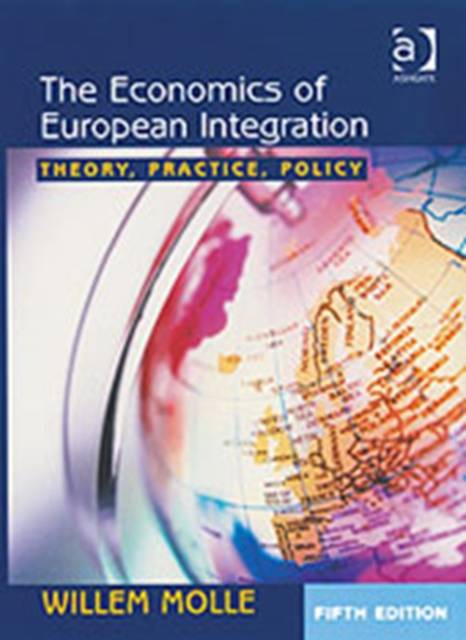
- Afhalen na 1 uur in een winkel met voorraad
- Gratis thuislevering in België vanaf € 30
- Ruim aanbod met 7 miljoen producten
- Afhalen na 1 uur in een winkel met voorraad
- Gratis thuislevering in België vanaf € 30
- Ruim aanbod met 7 miljoen producten
Zoeken
€ 79,95
+ 159 punten
Uitvoering
Omschrijving
Through four previous editions The Economics of European Integration by Willem Molle has established itself as a preferred textbook for students of the economics of the EU as well as a reliable reference work for those with a professional interest in the European Union. Carefully revised, this fifth edition takes into account changes in course requirements, new statistical information, and recent policy developments. It includes new material on: - the ongoing integration of the New Member States and the new forms of association with accession countries in Central and Eastern Europe; - the implementation of the Monetary Union and the performance of the euro; - the EU experience as a guide for the economic integration of other regions and for the improvement of world economic governance. Written in a clear style and combining original insights with authoritative analysis, this new edition will further enhance the book's reputation for providing the ideal introduction to the economics of the European Union.
Specificaties
Betrokkenen
- Auteur(s):
- Uitgeverij:
Inhoud
- Aantal bladzijden:
- 460
- Taal:
- Engels
- Reeks:
Eigenschappen
- Productcode (EAN):
- 9780754648123
- Verschijningsdatum:
- 22/08/2006
- Uitvoering:
- Paperback
- Formaat:
- Trade paperback (VS)
- Afmetingen:
- 436 mm x 65 mm
- Gewicht:
- 793 g

Alleen bij Standaard Boekhandel
+ 159 punten op je klantenkaart van Standaard Boekhandel
Beoordelingen
We publiceren alleen reviews die voldoen aan de voorwaarden voor reviews. Bekijk onze voorwaarden voor reviews.











